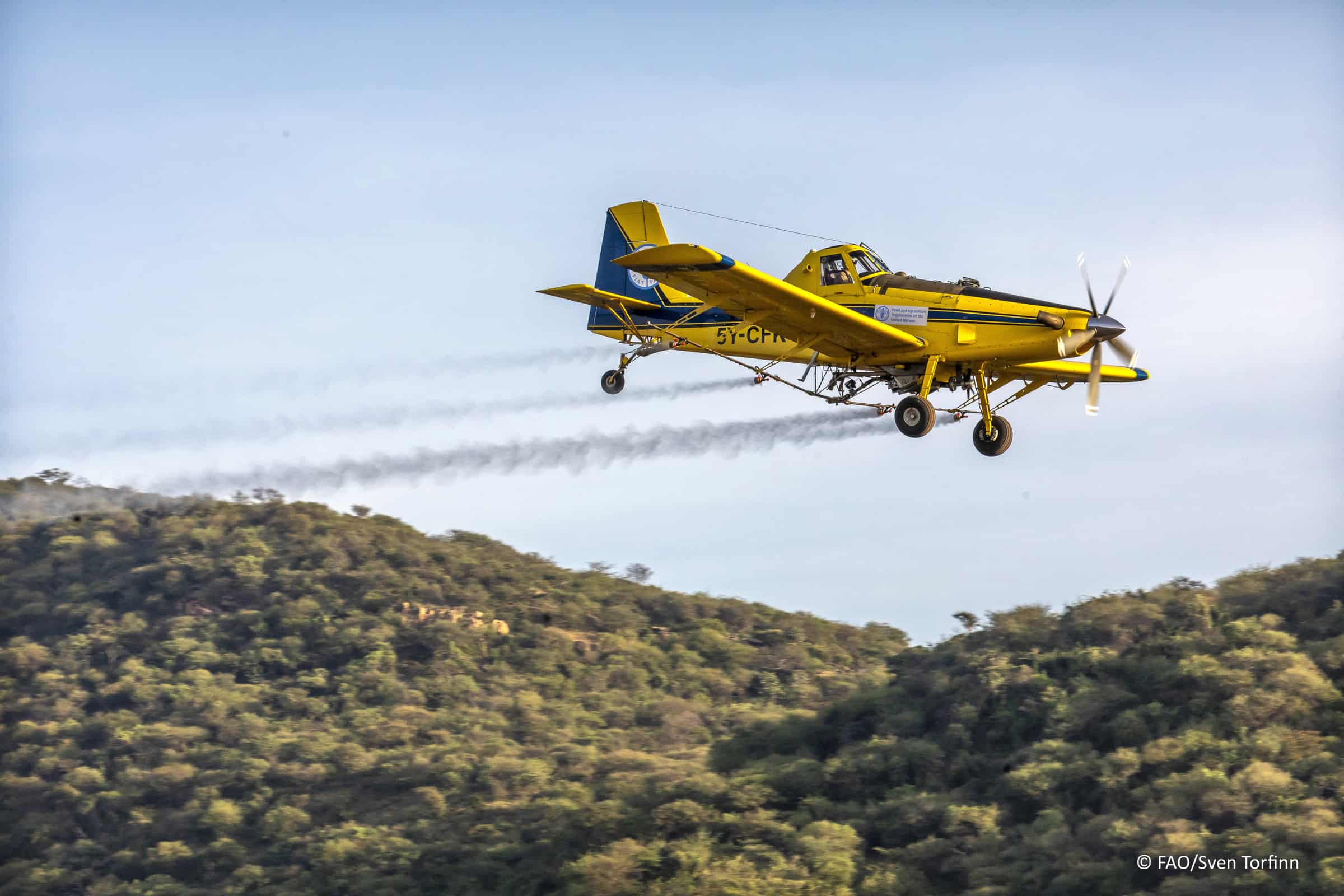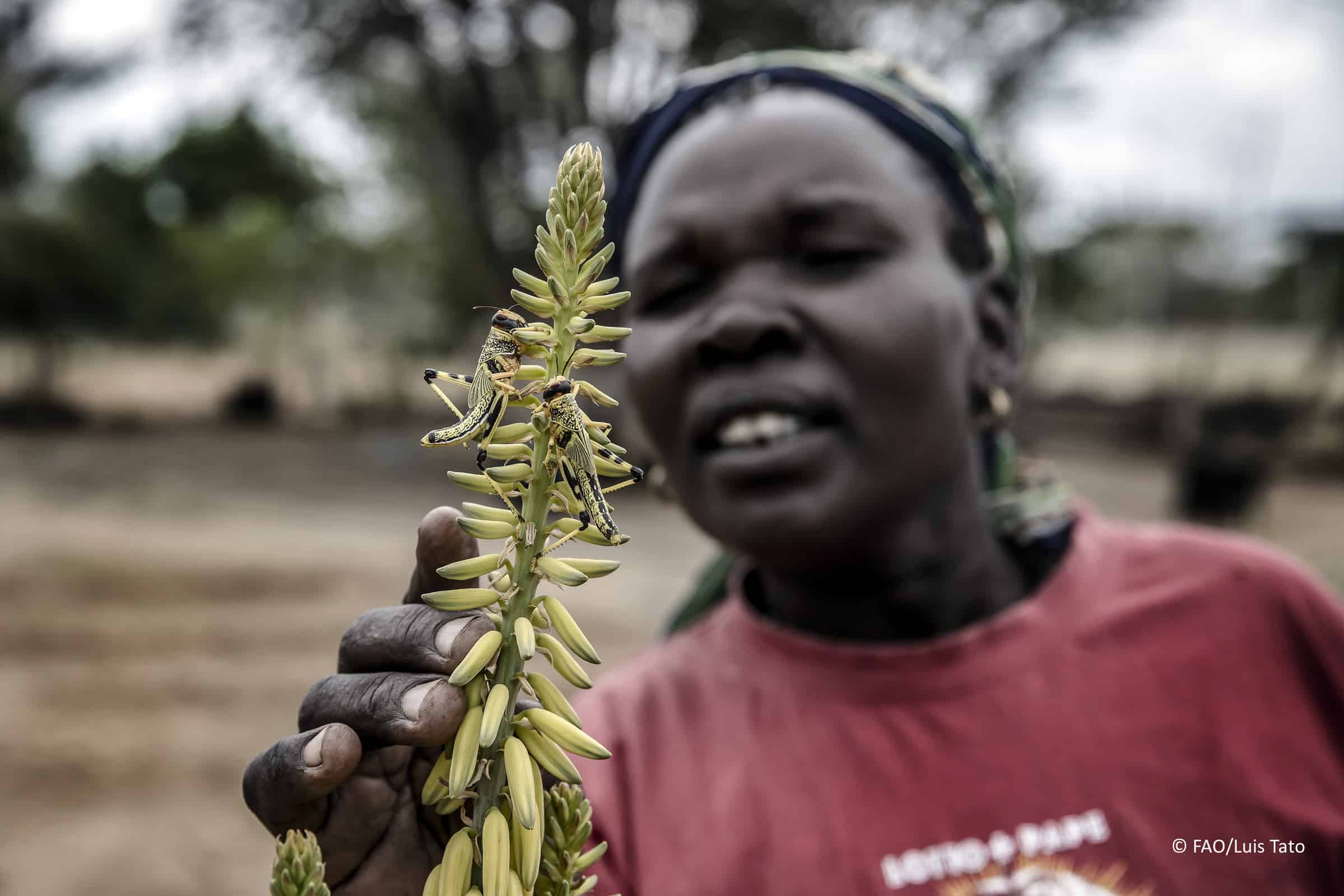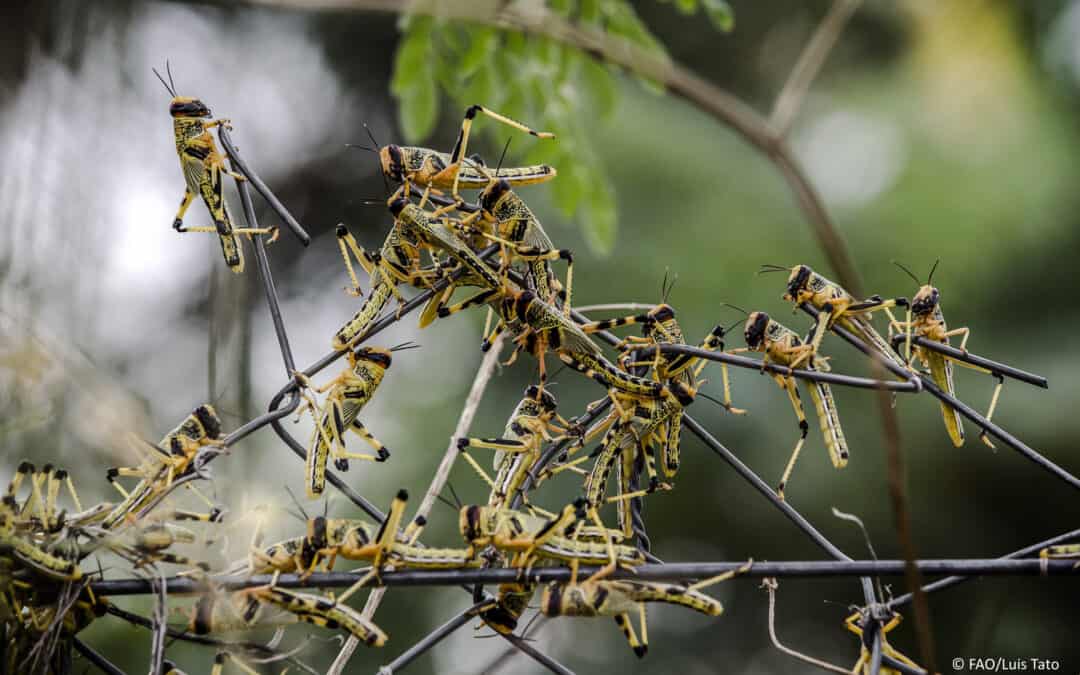Since December 2019, the countries of the Horn of Africa have been fighting the worst plague of locusts in the last 25 years. And Kenya, for example, has not seen a plague of this magnitude in the last 70 years! Benefiting from the long rainy season, the desert locusts were able to multiply at a rapid pace. On their way from the Middle East to the Horn of Africa, the swarms are eating everything they come across – seeds, pastureland, supplies and harvests. The already precarious food security of the people in this region is put under additional pressure. Together with other organizations, VSF-Suisse is supporting the local population in their fight against this massive threat.
The transnational fight against the locusts is difficult
In response to the current crisis, VSF-Suisse has joined forces with 27 other NGOSs to form the Regional Desert Locust Alliance (RDLA), in order to support the affected people with bundled forces. Although the Covid-19 restrictions make targeted and transnational action difficult, the fight against desert locusts with pesticides has been intensified, which has led to a decrease in swarms in most regions. However, the figures show that much work still needs to be done. In August 2020, 705 km2 of land in Kenya, Eritrea, Ethiopia, Southern Sudan and Somalia were classified as locust free. This is only a fraction of the affected area. And although mainly small and not yet reproductive swarms are currently active, the situation may deteriorate rapidly. There is a risk that undiscovered swarms will remain, mature and lay eggs again during the rains in October. The plague is not yet over.

Terrible consequences for humans and animals
The locust plague has direct effects on the food chains of humans and animals. The most visible consequence is the destruction of pastureland and crops. Without the important animal feed, the productivity of livestock suffers. Less milk and poorer prices for emaciated animals mean reduced income and food shortages for the affected families. Weakened animals are also more susceptible to disease. All these factors lead to a deterioration in food security for entire population groups. In addition, due to the lack of food, some animals move to other areas earlier than usual, which in turn leads to conflicts over land use rights between animal owners.


VSF-Suisse helps on site
In addition to the above-mentioned pesticide control of locusts, which is carried out in cooperation with the FAO (Food and Agriculture Organization of the United Nations) and other organizations, VSF-Suisse directly supports and works with the affected villages, communities and families. VSF-Suisse provides animal feed, promotes access to veterinary treatment and vaccinations and distributes seeds and agricultural tools for replanting the destroyed fields. The package of measures also includes direct cash payments to affected households. VSF-Suisse also organizes training and education to help prepare the population for future locust plagues. Experts agree that due to climate change, the Horn of Africa will be increasingly plagued by locusts in the future. The more that is invested in control and education, the less people and animals will have to suffer. Financial resources are urgently needed in order to continue to manage the crisis flexibly and efficiently. We thank all of our donors for their valuable support.




